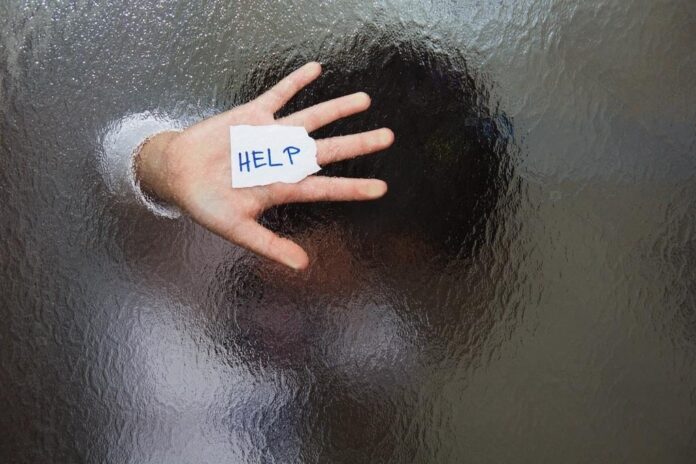CHILDREN- Child abuse is a serious and devastating problem that affects millions of children around the world every year. It can have long-lasting and profound effects on a child’s physical, emotional, and psychological well-being, and can even lead to death in severe cases.
The effects of child abuse can vary depending on the type of abuse, the severity, and the age and developmental stage of the child. However, some of the most common effects include:
Physical health problems: Children who are physically abused may experience a range of health problems, including broken bones, bruises, burns, and other injuries. They may also develop chronic health conditions, such as asthma, headaches, and gastrointestinal problems.
Emotional and psychological problems: Children who are abused may experience a range of emotional and psychological problems, including anxiety, depression, low self-esteem, and post-traumatic stress disorder (PTSD). They may also struggle with trust and attachment issues and have difficulty forming healthy relationships later in life.
Behavioral problems: Children who are abused may also exhibit a range of behavioral problems, including aggression, anger, and defiance. They may also engage in risky behaviors, such as substance abuse, self-harm, and promiscuous sexual behavior.
Cognitive and academic problems: Children who are abused may also struggle academically, and may have difficulty with cognitive tasks, such as memory and attention. They may also have difficulty with executive functioning, such as planning, organization, and problem-solving.
Social problems: Children who are abused may also struggle socially, and may have difficulty making friends, participating in social activities, and developing healthy social skills.
The Ripple Effect on the Society
The effects of child abuse can also have a ripple effect on society as a whole. Children who are abused are more likely to engage in criminal behavior and become incarcerated, which can have significant economic and social costs. They may also require more social services and healthcare, which can strain public resources.
Preventing child abuse is essential to promoting the health and well-being of children and society as a whole. This requires a multi-faceted approach that includes education, awareness, prevention, and intervention. Parents, caregivers, educators, and community members all have a role to play in preventing child abuse and promoting healthy child development.
Cubbing the menace of child abuse in the society requires a multi-faceted approach that involves various stakeholders including the government, NGOs, parents, schools, and community members. Here are some ways to curb the menace of child abuse:
Education and awareness: Education and awareness campaigns should be conducted to raise awareness about child abuse and its consequences. This should be done in schools, communities, and other public places. Parents and caregivers should also be educated on how to recognize and report child abuse.
Strict laws and law enforcement: There should be strict laws against child abuse, and they should be enforced rigorously. Offenders should be punished appropriately to deter others from engaging in such acts.
Reporting and response systems: There should be systems in place to encourage people to report cases of child abuse. These systems should be accessible, confidential, and responsive. Reporting should be made easy and anonymous if needed.
Child protection services: Child protection services should be available to provide support to victims of abuse and their families. They should offer counseling, medical care, and legal assistance to help the victims and ensure their safety.
Parenting programs: Parenting programs can be organized to help parents learn effective parenting skills and strategies. These programs can help reduce stress and prevent the occurrence of child abuse.
School-based interventions: Schools can implement programs that teach children about personal safety, boundaries, and how to protect themselves from abuse. Teachers and other school staff should also be trained to recognize and report cases of abuse.
Community involvement: Community members should be involved in preventing child abuse. This can be done by creating safe spaces for children, organizing community watch groups, and supporting families in need.
Meanwhile, curbing the menace of child abuse requires a concerted effort by various stakeholders in society. By working together, we can create a safer environment for our children and promote healthy child development.
Parental Role, Restraining The Menace
Parents play a critical role in preventing and curbing child abuse. Here are some ways in which parents can play their part:
Creating a safe environment: Parents should create a safe environment for their children at home. This includes monitoring their children’s activities, setting boundaries, and teaching them about personal safety.
Educating children: Parents should educate their children about child abuse and how to protect themselves from it. They should teach their children to recognize inappropriate behavior and tell a trusted adult if they feel uncomfortable.
Developing open communication: Parents should develop open communication with their children. Children should feel comfortable talking to their parents about anything, including abuse.
Monitoring online activities: Parents should monitor their children’s online activities and educate them about online safety. They should teach their children to avoid sharing personal information and to report any suspicious activity.
Reporting suspected abuse: If parents suspect that their child has been abused, they should report it to the appropriate authorities. Reporting abuse can help protect the child and prevent it from happening to other children.
Supporting victims: If a child has been abused, parents should provide emotional support and seek professional help. They should help their child to recover from the trauma of abuse.
Being a role model: Parents should be role models for their children. They should model appropriate behavior and treat their children with respect and kindness.
Nevertheless, Parents play a crucial role in preventing and curbing child abuse. By creating a safe environment, educating their children, developing open communication, monitoring online activities, reporting suspected abuse, supporting victims, and being a role model, parents can help protect their children from abuse and promote healthy child development.








